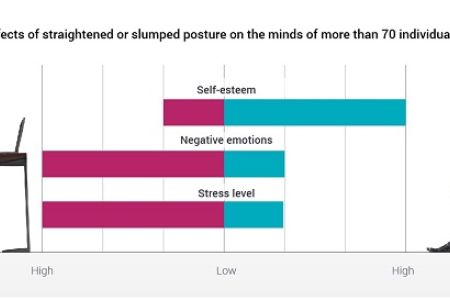
Physical pain is something we all have dealt with at some point in our lives. For some people, pain has been with them for so long that it is an extended part of their character. Chronic pain is ongoing and it can last anywhere from 6 months to many years. The most common type of chronic pain is back pain. It is the feeling where no matter how much we stretch, ice, massage or wave a magic wand around the aching spot, the pain just doesn’t go away. This is the everyday experience of 1 in 5 American adults. Chronic pain interferes with concentration, sleep, energy levels, and mood. This leads to depression, reduced productivity, reduced participation in social activities, and greater reliance on pain medication for long-term pain management. However, many who have chronic pain are still able to travel the world, play the sports they love, and chase their grandkids around! How do they do it, you ask?
MOVEMENT! Movement is the key to pain management. As bizarre as it seems that one should move when they are in pain, it is what our bodies are designed to do. Lying in bed can actually cause more harm than good as it can not only intensify your pain but it can also cause other chronic health diseases. Here we suggest 5 different types of activities that will improve joint function, prevent muscle wasting and control pain. It is important to remember that the pain will not completely go away, but being able to control it and still do the things you enjoy is the ultimate goal. Before participating in any exercise, always be sure to get examined and approved by your physician.
- Aquatic exercise
The physical properties of water make it an ideal environment for exercise like swimming and water aerobics. It’s buoyancy provides bodyweight offloading while it’s hydrodynamic drag forces resist movements for strength training. Water also provides support to improve balance during exercise. Research on patients with fibromyalgia showed that aquatic exercise improved overall pain, fatigue and quality of life. - Tai Chi
Tai Chi is an ancient form of Chinese martial arts that incorporates breath control, meditation, and movements to stretch and strengthen muscles. Research has shown that the slow and low-impact motions of tai chi can benefit people with osteoarthritis, rheumatoid arthritis, fibromyalgia, and tension headaches. After 12 weeks of tai chi, participants in one study reported less pain, less depression symptoms, and better sleep. - Yoga
Yoga focuses on breath regulation (pranayama) and body postures (asanas) to initiate a “relaxation response” in our body’s nervous system triggering neural modulation of our body’s sensitivity to pain. In one study on the effect of yoga on back pain, relaxation asanas, stretch asanas, and strength asanas helped with posture correction. This was followed by abdominal breathing training for relaxation and awareness to maintain the relaxed state to further help with self-control of pain symptoms. - Walking
Something simple yet difficult to find time for is walking. Walking not only gets us moving but it also gives us visual, auditory, and proprioceptive stimulations necessary to keep our body in optimal condition. Walking outdoors takes our mind away from the pain and centers it on the many things happening around us. Results from a study on supervised fitness walking in patients with osteoarthritis of the knee reported that a consistent walking program and patient education can improve functional status without exacerbating arthritic symptoms. - General Stretching
Conventional static stretching involves holding a stretch of a single muscle for 30 seconds. Stretching increases range of motion and blood circulation which promote healing. Among female patients with chronic neck pain, conventional stretching along with manual therapy were effective in reducing pain, improving range of motion and quality of life.
Staying active and learning to adapt movement modifications that best fits your lifestyle and activity level are critical to effective pain management. Our expert DEFY physical and occupational therapists are available to help answer any questions, concerns, or offer consultations on chronic pain management techniques. Don’t hesitate to contact us at https://www.defytherapyandwellness.com/contact-us.
Sources:
Zamunér, Antonio Roberto et al. “Impact of water therapy on pain management in patients with fibromyalgia: current perspectives.” Journal of pain research vol. 12 1971-2007. 3 Jul. 2019, doi:10.2147/JPR.S161494
Brigham and Women's Hospital. "One in five American adults experience chronic pain." ScienceDaily. ScienceDaily, 20 April 2021. <www.sciencedaily.com/releases/2021/04/210420092901.htm>.
Wang, Chenchen et al. “A randomized trial of tai chi for fibromyalgia.” The New England journal of medicine vol. 363,8 (2010): 743-54. doi:10.1056/NEJMoa0912611
Vallath, Nandini. “Perspectives on yoga inputs in the management of chronic pain.” Indian journal of palliative care vol. 16,1 (2010): 1-7. doi:10.4103/0973-1075.63127
Kovar, P A et al. “Supervised fitness walking in patients with osteoarthritis of the knee. A randomized, controlled trial.” Annals of internal medicine vol. 116,7 (1992): 529-34. doi:10.7326/0003-4819-116-7-529
Cunha, Ana Cláudia Violino et al. “Effect of global posture reeducation and of static stretching on pain, range of motion, and quality of life in women with chronic neck pain: a randomized clinical trial.” Clinics (Sao Paulo, Brazil) vol. 63,6 (2008): 763-70. doi:10.1590/s1807-59322008000600010

Posture and The Mind

What does DEFY mean?

Thriving while Working from Home

Why you may feel more pain during quarantine and how to handle it.










